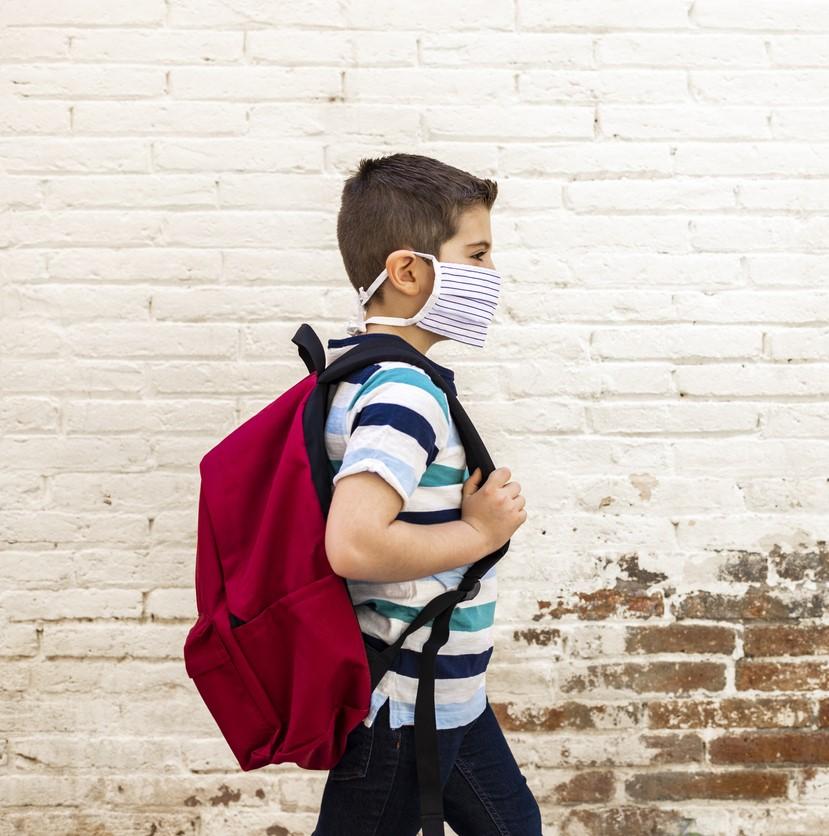The head of the Centers for Disease Control and Prevention (CDC) said today that a child is 6 to 13 times more likely to die from influenza than from COVID-19, and that school closures that began in the spring led to significant public health problems for the nation's children, including worsening mental health and increasing hunger.
CDC Director Robert Redfield, MD, made those comments during a media briefing today on the CDC's enhanced guidelines for school reopening, which were released late yesterday.
"These are a series of additional resource documents to put some more granular detail about how to operate and put guidelines into practical plans," Redfield said. The new recommendations do away with mass screening for symptoms but emphasize a transition to "cohorting," or keeping groups of kids together all day, instead of keeping children 6 feet away from each other. They also add language about school closures after a positive case detection.
Redfield made the comments after the country reported 68,633 new COVID-19 cases yesterday, with 1,114 deaths, according to the Johns Hopkins coronavirus tracker, and at least half of those deaths were recorded in Florida, California, and Texas.
This is the third day in a row of more than 1,000 US deaths. The country has 4,084,062 total COVID-19 cases and 145,063 deaths.
Opening schools is 'default'
"We need to reopen the schools with the understanding the virus is still here," said Redfield. "Schools need to avoid a knee-jerk response and not close school if a child is positive [for COVID-19]."
Instead, school leaders must look at community spread in their district when deciding how to handle a student or staff member who has COVID-19.
"In order to prioritize to open school safely, we need communities to adopt actions to slow COVID now," said Redfield, suggesting it is every American's duty to limit the spread of COVID-19 so children have the chance to resume in-person schooling in the fall.
"We owe it to the nation's children to take every action possible," he said. Throughout the briefing, Redfield emphasized that he had 11 grandchildren, including 1 child with cystic fibrosis. He said he understands parents' hesitations about sending kids back to the classroom, but said he is reassured by data that show very few children get seriously ill from the novel coronavirus.
Also at the briefing was Mitchell Zais, PhD, the deputy Secretary of Education. Zais said teachers were essential workers in the current pandemic, as they are essential to the nation’s future.
"The default needs to be that schools are fully open and operation in the fall. In areas where there are hot spots, distance learning might need to be adopted for a reasonable amount of time," said Zais. "But it is safer, healthier, better for students to be in school full time."
The guidelines come as the opening of schools has become an increasingly fraught political landmine. President Donald Trump has made it clear he wants and expects schools to open full time in the fall, but 11 of the nation's 15 biggest school districts have already announced plans to continue with online learning for the start of the 2020-21 school year because of surging coronavirus cases in their cities.
Throughout the media briefing, Redfield said the CDC's recommendations were its own, but as a member of the coronavirus task force, the White House did see the documents.
Call for national lockdown
As cases mount, a group of 150 public health and medical experts signed a letter sent on behalf of the US Public Interest Research Group to the White House and Congress asking political leaders to shut down the country once again to control the outbreak.
"Non-essential businesses should be closed. Restaurant service should be limited to take-out. People should stay home, going out only to get food and medicine or to exercise and get fresh air. Masks should be mandatory in all situations, indoors and outdoors, where we interact with others," the letter says.
"We need that protocol in place until case numbers recede to a level at which we have the capacity to effectively test and trace."
Mask mandate may be helping in Texas
Three weeks after Governor Greg Abbott issued a statewide mask mandate, some epidemiologists are cautiously optimistic the order is helping to bring down cases in Texas, according to the Texas Tribune.
Case counts in Texas have appeared to plateau this week, with and average of 9,100 daily new cases of the virus. The state recorded its largest number of daily new cases July 15, at 10,791.
Abbott said on Twitter that he was hopeful the data proved Texas could avoid another lockdown if citizens remained diligent with mask use and social distancing.
Convention, evictions, and job loss
In other US developments:
- President Trump announced yesterday that several events slated for the Republican National Convention in Jacksonville, Florida, next month are now canceled owing to COVID-19, including Trump's keynote speech.
- Tonight at midnight, the federal moratorium on evictions that was signed into law in March as part of the CARES Act expires, which means millions of Americans are at risk for eviction. Congress may take up the issue in a new relief bill, but that bill is not expected to be finalized until next month.
- According to a new poll, 47% of Americans whose families have seen job loss due to COVID-19 now say those jobs are never coming back. In April, 78% of households with a pandemic-related job loss said the loss would just be temporary.






















